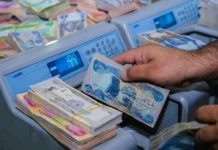TSMC Reports Record Q3 Profit on Soaring AI and iPhone Chip Demand
Taipei — Taiwan Semiconductor Manufacturing Company (TSMC) posted a record-breaking third-quarter net profit on Thursday, powered by surging demand for chips used in iPhones and artificial intelligence (AI) applications.
The world’s largest contract chipmaker reported net profit of NT$452.3 billion (US$14.7 billion) for the three months ending September, up 39.1% from a year earlier — beating analysts’ expectations of NT$406.67 billion, according to a Bloomberg survey.
Quarterly revenue jumped 30% year-on-year, driven by strong orders from Apple and Nvidia, two of TSMC’s biggest customers.
“It’s not just Apple’s new iPhone driving sales. AI clients like Nvidia and AMC are ramping up orders for high-end chips as well,” said Dilin Wu, research strategist at Pepperstone, noting that TSMC’s technology “remains difficult to replicate,” helping sustain its margins and valuations.
AI Boom Lifts Chipmakers Despite Trade War Fears
TSMC’s blowout earnings come amid escalating U.S.-China trade tensions and fresh concerns about export restrictions on advanced chips and China’s rare-earth export curbs.
Still, global AI investment is expanding at a blistering pace, projected to reach $1.5 trillion by 2025 and exceed $2 trillion in 2026 — nearly 2% of global GDP, according to Gartner.
Wu added that some companies may “pull forward shipments to avoid restrictions”, especially Chinese clients seeking to stockpile AI and GPU chips ahead of potential new U.S. tariffs.
‘Silicon Shield’ and U.S. Pressure
TSMC’s dominance has long been viewed as part of Taiwan’s so-called “silicon shield” — a strategic deterrent that makes the island’s chip industry too valuable to disrupt.
However, Washington has been pressing Taipei to relocate more of its semiconductor production to U.S. soil. TSMC has already pledged to invest an additional $100 billion in U.S. facilities.
U.S. Commerce Secretary Howard Lutnick recently revealed he had proposed a “50-50 split” in chip manufacturing between Taiwan and the United States — a plan that Taipei rejected.







